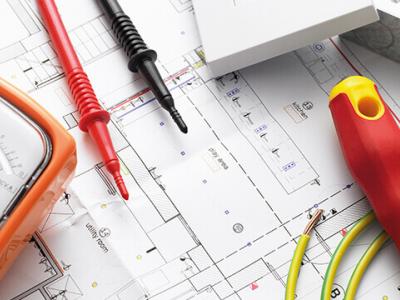Electrical Testing Advice for Landlords

Electrical Testing Advice for Landlords
Plans for mandatory five-year electrical safety checks in the private rental sector in England have finally been confirmed by the UK government. This move, which requires further legislation, means that all landlords will be required to have an electrical check (EICR) on their property(s) by a qualified electrician. This rule will mirror those already in operation in Scotland whose rental safety standards currently far outweigh those of the rest of the UK.
Five Yearly Electrical Checks
From 1st June 2020, private landlords in England will be required to have the electrical installation in their rental properties checked by a qualified electrician to ensure that they are safe. This means that:
• Electrical installations must be inspected and tested prior to the start of a new tenancy from 1st July 2020
• Checks must be carried out on any existing tenancies by 1st April 2021
These checks must then be carried out on a five yearly basis.
A copy of the most recent electrical safety condition report (EICR) must be provided to both new and retained tenants within 28 Days & Local authorities within 7 Days if requested by them. If the inspection reveals any action that needs to be taken, this remedial work must be carried out within 28 days. It must meet British Standard BS 7671 18th Edition, with appropriate certification issued.
Beware of cheap inspections as these normally only do a small percentage of the inspection required ! New rules insist that 100% of the installation is to be tested & minimum 20% of visual inspection. Cheap inspections will have LIM written in the boxes or they could be left blank.
These mandatory electrical checks come at the end of years of campaigning by consumer and safety groups such as Electrical Safety First and within the Electrical Industry Itself.
Minister for Housing Heather Wheeler MP said: "These new measures will reduce the risk of faulty electrical equipment, giving people peace of mind and helping to keep them safe in their homes. He also went on to say "It will also provide clear guidance to landlords on who they should be hiring to carry out these important electrical safety checks."
Does this affect me & what does it mean to me?
The legislation affects anyone who rents out a property whether as a professional landlord, whether you rent your property out through a lettings agency, to a family member or even a room in your own home. It means you have a legal responsibility for electrical safety in the property.
Who can undertake the testing at my property?
Who can carry out these checks ?
The Landlord is now fully responsible under these new conditions and can be fined up to £30,000 per property for non compliance.
As the landlord, you are responsible for making sure that the person who completes the check is suitably competent.
Using an electrician or firm that is a member of an accredited registration scheme operated by a recognised body will give you the confidence that this has been achieved.
Any Electrical Inspector you employ to undertake the electrical inspection and testing within your property must have:
• Adequate insurance. This should include at least £2 million public liability insurance and £250,000 professional indemnity insurance.
• A qualification covering the current version of the wiring regulations (BS 7671 – 18 th Edition ).
• A qualification covering the periodic inspection, testing and certification of electrical installations.
• At least two years’ experience in carrying out periodic inspection and testing.
Using someone listed on this website will ensure they meet the above requirements and are deemed competent by a Government Authorised Competent Person Scheme Operator:
www.electricalcompetentperson.co.uk
What happens if the property does not ‘pass’ the test?
If the electrical safety check fails, does not pass which is generally known as ‘Unsatisfactory’ the remedial/repair work Must be carried out within 28 DAYS to ensure safe and proper compliance. This work will have to comply with current IET Regulations now BS7671:2018 18th Edition & to part ‘P’ of the building regulations and must be notified to Building Control at your local council.
Once these works have been completed a further inspection can take place and a ‘Satisfactory’ report can be issued as long as the remedial works have been undertaken to the relevant standards.
The report is scheduled to last five years and after that a further inspection will need to be completed. It is advised that a ‘visual inspection’ should be carried out on any change of tenancy within the five year period.
What if I do not get an electrical safety check?
You will not be complying to regulations and action can be taken against you and all that goes with it. Aside from the Government legislation there has been a significant rise in local authorities with their own specific legislation and several fines of £ 30,000 have been issued for non compliance. In most cases it doesn't take too much and doesn't cost too much to get your house in order, this obviously depends on the individual properties circumstances.
Another aspect often overlooked is the Insurance for the property. Many insurance companies require compliance with current legislation, so if your'e not complying you may not be insured.
